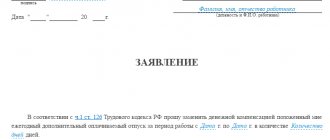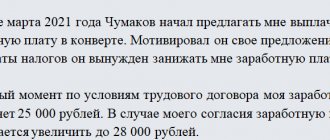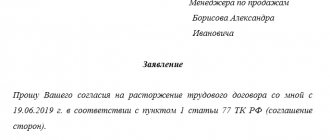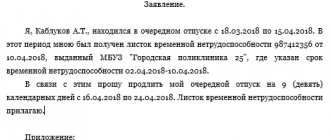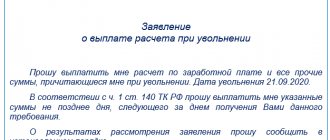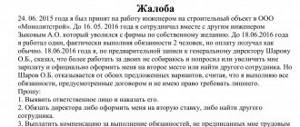How should they be summoned for questioning according to the law?
According to Part 1 of Article 188 of the Code of Criminal Procedure of the Russian Federation, a witness or victim is summoned for questioning in a criminal case by subpoena. The summons indicates the name of the citizen summoned for questioning, as well as in whose capacity this citizen is summoned. The name of the official, the date and time of appearance for questioning, the address at which to appear and the consequences of failure to appear without good reason are always recorded in the subpoena.
In most cases, a subpoena is given to a citizen against a signature, but can be transmitted via communications or through third parties.
Is it necessary to go for interrogation if the call was in violation of the rules?
There are situations when the investigator called for questioning not according to the rules. If the call rules are violated, the call can be considered invalid. For example, a citizen may not appear for questioning if he found a summons in his mailbox, that is, the fact of receiving it was not recorded in any way. Moreover, a telephone call also does not oblige the citizen to appear for questioning. Another thing is that sooner or later the summons will still be served properly, namely against a receipt. In this regard, it is worth considering whether there is any point in delaying the investigation or not.
What are the consequences of failing to appear for questioning under a subpoena?
The obligation of a witness to appear for questioning is enshrined in clause 1, part 6, article 56 of the Code of Criminal Procedure of the Russian Federation. The witness is obliged to notify the court, investigator or inquiry officer in advance about the reasons for failure to appear, which is enshrined in Part 3 of Art. 113, as well as in Part 3 of Art. 188 Code of Criminal Procedure of the Russian Federation. In case of failure to appear without good reason, procedural coercive measures may be applied to the witness, namely: an obligation to appear, a summons or a monetary penalty, as stated in Art. 111 of the Code of Criminal Procedure of the Russian Federation.
The obligation to appear is a written obligation of a citizen to appear when summoned by an inquirer, investigator or to court at the appointed time, and if he changes his residence address, to immediately notify about it. The consequences of violating the obligation are explained to the citizen, about which, in accordance with Article 112 of the Code of Criminal Procedure of the Russian Federation, a corresponding note is made.
Part 2 of Article 113 of the Code of Criminal Procedure of the Russian Federation establishes the definition of a drive. It represents the forced delivery of a citizen to an inquiry officer, investigator or to court. The citizen’s signature on the determination or decree on the arrest indicates that the procedure was officially announced to the citizen.
The drive cannot be carried out at night, with the exception of urgent cases. Minors who are under fourteen years of age, pregnant women, and patients who, due to their health condition, cannot change their place of stay, as confirmed by a doctor, cannot be brought into custody. The arrest is carried out by the bodies of inquiry, if the basis is a decision of the inquirer or investigator, as well as by bailiffs, if the basis is a court decision.
Failure to appear for questioning before an interrogator, investigator or in court may entail a monetary penalty in the amount of up to two thousand five hundred rubles, as established in Article 117 of the Code of Criminal Procedure of the Russian Federation. A monetary penalty is imposed by the court in accordance with Article 118 of the Code of Criminal Procedure of the Russian Federation.
Subpoena for questioning: law, consequences of failure to appear
Everyone should know what a summons for questioning looks like, who signs it, and how it is handed over. There are certain procedural rules that must be followed for a document to have legal force. Let's consider all these questions in more detail.
You can read about a witness in a criminal trial in our article here.
Subpoena for questioning: law
A subpoena is a document issued by a judge or other official to summon a witness for questioning. However, this practice is applied only for criminal proceedings. There is a difference between a subpoena for a survey and for an interrogation.
A summons for questioning is sent as part of an already initiated criminal case. And the survey is carried out during the pre-investigation check. The latter is necessary to collect relevant evidence and understand whether there are grounds to initiate a case. It is necessary to understand who has the right to summon for questioning and interrogation:
- judges;
- Investigative Committee employees;
- police investigators;
- FSB investigators;
- police investigators;
- FSSP employees.
Extract from Article 188 of the Code of Criminal Procedure of the Russian Federation
Thus, if the document did not come from an authorized person, then the requirements can be ignored. Article 188 of the Code of Criminal Procedure of the Russian Federation states that a subpoena calls only for questioning. However, Chapter 26 of the Code of Criminal Procedure of the Russian Federation also allows individuals to be summoned to carry out other necessary investigative measures.
Delivery of the summons to the summoned person
It is necessary to understand how the process of transmitting a subpoena occurs. The law provides for several possibilities, which are specified in Part 2 of Article 188 of the Code of Criminal Procedure of the Russian Federation.
- Personally against signature. If the person being called is absent for some reason, then the recipient can be any relative who lives together. This is a standard method that involves the official going to the summoned person's home and serving a summons. The latter must sign for receipt. However, it is quite rare to use this method, since many do not live at the place of registration.
- Using available means of communication. Mail, phone, instant messengers, phone call. However, this method raises many questions among lawyers, since it is not clear who is really transmitting the message. When making a call, it can be difficult to prove that the official conveyed information, so they often try to use instant messengers. There is a read mark there. But you need to know who owns the phone.
- By mail at your place of work. If it is impossible to establish the actual location of the person being called, you can transmit the message through the employer. The letter is sent to the address of the company or delivered personally by an official to the person responsible for receiving the correspondence.
- On behalf of officials, it is transferred to organizations that are obliged to provide the document directly to the recipient. For example, it is known that a particular citizen must appear for a medical examination at a certain time. Then it is allowed to provide the document to the doctor who will examine this person.
Extract from Article 189 of the Code of Criminal Procedure of the Russian Federation
It is worth understanding that recipients do not always want to receive this letter. Therefore, law enforcement officials have to be creative. For example, they leave it with neighbors, put it under the door, and so on. At the same time, everything is recorded on camera, so that later it cannot be said that the letter was not received.
Important! The subpoena must be served only by legal means. If you use methods that violate the provisions of the current legislation, then the fact of delivery is recognized by the court as invalid. As a result, the information obtained during the interrogation is also rejected by the court and is not attached to the case.
If a minor is summoned, then it is necessary to act through legal representatives.
Criminal Procedure Code of the Russian Federation
What does a summons for questioning look like?
You need to understand what this document looks like. It is compiled using typewritten text. The following must be there:
- In the upper left corner there is a stamp of the organization from which the summons is sent, the date of preparation and the number of the outgoing document.
- In the upper right corner you must indicate to whom the letter is being sent.
- The title is “Summons to Summon for Interrogation.”
- Below is a text indicating where and what time you need to appear, and what documents you need to have with you.
- Informing about the possibility of inviting a lawyer, in accordance with the provisions of Article 50 of the Code of Criminal Procedure of the Russian Federation.
- Informing about the consequences of failure to appear.
- FIL of the official, his title and position, as well as personal signature.
- Method of transmitting information, date and time of delivery.
Summons for questioning - sample
The document must bear the seal of the organization. This way, the person being called will understand that it is an original and not a fake.
Consequences of failure to appear for questioning
You need to know what will happen if the person being summoned does not appear for questioning. All consequences are specified in the current legislation.
Attendance is mandatory, and if you cannot come at the specified time, you must inform the official in advance. The agenda always includes contact information.
It is enough to call and report the impossibility of arriving, indicating the reason. Then it will be possible to agree on another date. In this case, there will be no negative consequences.
Important! Sometimes the summons arrives late. This is a valid reason for failure to appear, then there is no liability. You may also not come due to your absence from the city or country. It is worth providing the official with relevant evidence.
The moment when a person lives in another region is considered controversial. There is not always money for a trip. Then it is allowed to use technical means to organize two-way communication. For example, you can use Skype. In this case, the interrogation protocol is sent by mail. After signing it, the interrogated person sends the document back.
Conducting an interrogation
To be held liable, the following facts must be proven:
- the summons is drawn up correctly, in accordance with legal requirements;
- the document is provided to the summoned person in a legal manner;
- the absence was for an unexcused reason.
Forced delivery to the place of interrogation is allowed, as well as the imposition of a fine and arrest.
Controversial issues
There are several controversial nuances in which it is possible to appeal an official’s decision to prosecute due to failure to appear.
- Sending a document by mail does not always guarantee its receipt. Often letters are taken out by third parties. Therefore, postal workers must serve the summons in person to avoid any problems.
- Sending by email or using other modern means of communication also does not guarantee receipt. It is required that a scan of the summons be sent. If the text does not comply with the current requirements, then the letter can be legally ignored.
- If information is transmitted by telephone, the parties do not see each other. This means that there is a possibility of deception. It is also impossible to prove the fact of communication, so failure to appear is allowed. However, this issue is controversial, since communication and transmission of a message are often proven through court. For this purpose, witnesses are brought in: colleagues of the official who work with him in the same office.
- Often, with the chosen preventive measure of detention, problems arise because the letter did not arrive or was received late. But such a measure of punishment is used in relation to those who deliberately ignore the requirements of an official.
An employee of the RF IC fills out a summons
Thus, if an official insists on punishment, it is possible to challenge this decision. To do this, you must submit an appeal and attach relevant evidence, if any.
It is recommended to hire a lawyer who will protect the interests of the client. But you need to understand that the service is paid.
A public defender is provided only to accused persons after a criminal case has been initiated.
Conducting an interrogation - step-by-step instructions
The interrogation must take place strictly according to the principles established by law. The person being interrogated is obliged to tell the truth. If it is possible to document the words, it is worth doing. There are criminal penalties for providing false information. Thus, from a witness one can become an accused. It is worth taking a closer look at how everything happens.
Step 1
Initiation of a criminal case if appropriate evidence is available.
Criminal proceedings
Step 2
Drawing up a summons for questioning to all persons related to the case. It is necessary that the documents are completed correctly. In this case, it is not allowed to interrogate several persons at the same time, as this may lead to distortion of the information received. The exception is when there is a confrontation.
Drawing up a subpoena for interrogation
Step 3
The appearance of the person summoned for questioning. The official must verify the identity using a passport or other identification document, and then inform the person about the reason for the call.
Appearance of the person summoned for questioning
Step 4
Conducting interrogation in accordance with the provisions of the Code of Criminal Procedure of the Russian Federation. If the person being called comes with a friend or relative, the latter will not be allowed into the office. You are allowed to come with a lawyer. Then the information is entered into the protocol that the person being called was not alone. It is also possible for legal representatives to be present during the interrogation of incapacitated persons or minors.
Conducting an interrogation
Step 5
Signing of the protocol by the parties.
Signing the protocol
It is worth noting that you can leave work during the interrogation. At the same time, wages are maintained. You are allowed to take with you the necessary evidence in the case.
If not all information is provided during interrogation, because the person has forgotten the information and needs confirmation, then a second call is allowed. It is prohibited to conduct interrogations on the territory of the summoned person.
An exception is if he is in the hospital and cannot come in person due to health problems. They can also come to a disabled person who cannot move independently.
FAQ
There are always various questions that relate to being called in for questioning. It is worth considering them in more detail in order to understand how to behave correctly and what to do when receiving a summons.
FAQ
Table 1. Main questions that relate to a subpoena for interrogation
Question answer
| Can an investigator make a phone call demanding that you come in for questioning? | Maybe this is one of the legal ways of transmitting information. However, you may refuse to come if you are not sure that an official is calling. It is also possible to call back after some time at the telephone number of the premises where you need to appear, indicated in the online directories, to verify the veracity of the information transmitted. |
| Is it possible not to go to interrogation? | You can, but it’s worth familiarizing yourself in detail with the provisions of Articles 56 and 113 of the Code of Criminal Procedure of the Russian Federation. That is, forced delivery is allowed, as well as the imposition of a fine. In case of malicious evasion, arrest is not ruled out. |
| What to do if you can’t show up? | It is worth calling the official and explaining the situation. Then you can change the date and time of appearance in advance. Information about this is provided in Art. 188 Code of Criminal Procedure of the Russian Federation. |
| Is it possible to take with me documents that are relevant to the case? | This will be an important advantage, since the information in the protocol will be indicated not only from words, but will also have appropriate documentary evidence (Article 189 of the Code of Criminal Procedure of the Russian Federation). |
| Is it possible to find out the details of the case in which the interrogation is taking place? | is allowed, but most likely there will be no answer. The witness is an object, not a subject, despite ever-increasing rights. That is, the investigator or other official gives general information about what happened, without going into details. This is required to understand what will be discussed and whether the witness has additional information. |
| Is it possible not to answer questions? | Only the accused have this right. Article 51 of the Code of the Russian Federation states that you do not have to testify against yourself, your spouse or a close relative. That is, in other cases it is the responsibility of a citizen. Moreover, Article 308 of the Criminal Code of the Russian Federation provides for punishment for refusal to testify. |
| Is there liability for false testimony? | It is provided for in Article 307 of the Criminal Code of the Russian Federation. Therefore, if the witness is not sure of the reliability of the information, it is better not to say it. It is also possible to say that there are doubts about the veracity of the information. Then they are used in the case materials after checking the facts. |
| Can a witness be put under pressure? | The official may obtain evidence using all available information. Exercising psychological pressure is permitted by law. Violence is unacceptable. |
| What to do if there are inaccuracies in the protocol? | You can refuse to sign it, but then you can easily fall into the circle of suspects. It is better to ask to redo the document and sign it. You can also make clarifications to the protocol. Information about this is provided for in Article 190 of the Code of Criminal Procedure of the Russian Federation. |
Thus, a summons for questioning is drawn up in accordance with the requirements of the law. It is transmitted in an accessible and legally prescribed manner. Failure to appear results in sanctions for the person being called.
To prevent them from being imposed, you should call in advance and tell them why you won’t be able to show up at the appointed time. After the interrogation, it is recommended to carefully read the protocol. It is written in the first person. It is advisable to convey information verbatim.
Additionally, it is permitted to use video and sound recording tools to eliminate inaccuracies when recording materials on paper.
If a lawyer is present with the person being called, he must be provided with the relevant documents. Their absence is not a reason for being in the office. That is, third parties must wait outside the door.
What is the difference between interrogation by an investigator and interrogation by an interrogator?
The interrogating officer and the investigator primarily perform the same functions, as stated in Articles 150 and 151 of the Code of Criminal Procedure of the Russian Federation. However, the investigator has great procedural powers when interrogating the suspect and the accused. Only the investigator can conduct a preliminary investigation of the case, while the interrogating officer is engaged only in inquiry. The interrogation by the investigator is carried out in relation to crimes of minor and medium severity, which in practice means that the criminal is already known in advance.
Preliminary investigations are conducted in cases of grave and especially grave cases, where the identity of the criminal has not been established. It is logical that the interrogation conducted by the investigator is aimed at finding out the identity of the criminal, while the interrogation by the investigator is conducted to clarify the circumstances of the incident.
How to behave during interrogation in criminal cases
During interrogation in a criminal case, investigators resort to standard psychological techniques that are aimed at getting the suspect to talk. The question arises of how to respond during interrogation. Professionals recommend answering questions as concisely as possible, because everything said during interrogation can be used in court against the defendant. The more a citizen speaks during interrogation, the easier it is for him to admit inconsistencies in his descriptions, which the investigator will definitely pay attention to.
If the investigator’s question is not clear, then it is better to take time to think and weigh every word before answering. At the same time, it is important to behave like a person who is innocent, that is, if the investigator has made a direct accusation, then immediately react with a violent negative reaction.
Application to the Investigative Committee of the Russian Federation against the employer
Employees of the Investigative Committee rarely get involved in proceedings in the field of violations of labor laws, but, if necessary, help employees of enterprises and organizations. In most cases, complaints from the team with claims against their employer are sent to the investigative authorities.
The bulk of employee dissatisfaction is associated with systematic abuse of official authority. When drawing up such a statement, it is necessary to state the essence of the claim as accurately as possible.
Expert opinion
Mikhailov Igor Konstantinovich
Legal consultant with 10 years of experience. Specializes in the field of civil law. Has experience in document examination.
If you don’t understand how to write a sample application to the investigative committee, you can consult a lawyer on our website who specializes in such issues.
There is one peculiarity when filing a complaint against the actions of an employer. If false data is provided, the applicant may be subject to criminal prosecution in accordance with Article No. 306.
What rights does a citizen who has been summoned for questioning need to know?
In any case, during interrogation, a citizen retains the right not to testify against himself, his spouse and close relatives, which is enshrined in Article 51 of the Constitution of the Russian Federation. Refusal to testify does not worsen the position of the interrogated person, even if the investigator assures the opposite. Also, during interrogation, a citizen has the right to make an audio recording of a conversation with the investigator. Using the recording, you can complain about the investigator’s illegal actions, if any.
In addition, the interrogated citizen has the right to his own lawyer, who will build a line of defense in the most favorable manner.
Sample explanation form of the Ministry of Internal Affairs - Main Law
Last update: 08/11/2020
When a criminal case has been initiated and a citizen is invited to give evidence to the Investigative Committee, the department of inquiry, it is more or less clear how to behave taking into account the status - witness, accused or suspect, victim (in a number of articles we told how to behave during interrogation ).
When a criminal case has not yet been initiated, and you are invited orally or by an official summons to the department to give explanations, your procedural status is unclear, and it is often unclear why you are being summoned. What rights do citizens have when giving an explanation, whether it is possible to refuse to carry out this procedure - this is discussed in our article.
What is an explanation
This is a certain form of securing evidence in writing. Any information that comes from a person is documented by a law enforcement officer in the form of a written explanation. This is done in order to compile verification material into which all collected documents, including explanations, are filed.
The obligation to conduct an inspection for each detected fact of an offense or for a statement received by the police is enshrined in the Code of Criminal Procedure of the Russian Federation and the Code of Administrative Offenses of the Russian Federation.
Question: Is it possible to select an explanation orally?
The Police Law does not prohibit receiving oral explanations about the events of the incident, but without written form they will not have evidentiary value later. Meanwhile, law enforcement officers often use oral explanations from citizens in their work to find out the details of what happened and find those responsible.
For example , neighbors called the police because of noise in the apartment above at night. Having arrived at the scene, the police will begin to figure out why the neighbors contacted the police, interview them by obtaining a written explanation, then go up to the apartment where the noise was made.
Everyone who was in it will also be required to give written explanations. Under the described circumstances, the police usually identify the owner of the apartment and interview him, even if he was not in the home at the time the offense was committed.
If the apartment is for rent, the police, by asking neighbors and the chairman of the Criminal Code, will establish who it is registered to. Explanations about the apartment owner’s data in this situation can be obtained orally; they do not have to be recorded in the form of written explanations.
Thus, important information that is not directly related to the event of the offense may well be obtained orally.
An explanation should be distinguished from an interrogation - after the initiation of a criminal case (documented by a resolution), explanations are no longer taken, since interrogations are carried out with the drawing up of protocols by the official in whose proceedings the materials are located.
Before a criminal case is initiated, they are usually interviewed by local police officers or detectives, but as part of checking a report of a crime, interrogators, investigators of the Investigative Committee, FSB, Drug Control, Prosecutor's Office, etc. are also entitled to interview.
For administrative offenses, the survey is carried out by representatives of law enforcement agencies of relevant competence - for example, in case of traffic violations, explanations are selected by traffic police officers, in case of violation of public order - by employees of the PPSP of the Ministry of Internal Affairs on the basis of the Federal Law “On Police”.
Let us remind you once again that when giving an explanation, a person has no status - neither a victim nor an accused.
At the same time, despite the lack of procedural status, a citizen has the right to refuse to give any explanations against himself and his loved ones on the basis of Art. 51 of the Constitution of the Russian Federation.
It should be taken into account that with such a refusal it will be difficult to find out all the circumstances of what happened; the police will need to look for and interview other people.
It would be useful to compare whether such an outcome is favorable for your position.
For example , if M.I. Petrov was injured during the incident, it is “unprofitable” for him to refuse to give an explanation, and for T.I. Sidorov, who is guilty of the crime, perhaps refusing to talk about the incident can become an advantageous line of defense.
How to write an explanation to the police, sample form
The explanation can be handwritten or typed on a computer. It must contain information relating to events of interest to the police, date, signature, place of compilation, and information about the identity of the person being interviewed.
Sometimes the police office already has an explanatory form that must be filled out in your own hand.
When filling out, the investigator or district police officer may ask specific questions or ask you to write about the event as a whole, without specifying details.
It all depends on the situation in connection with which the need for a survey arose, but in any case, you should remember to completely read the entire document, and only then should a personal signature be affixed with a transcript of the surname:
EXPLANATION (example)
Nsk 07/20/2020, 12:00
Explanatory note to the police
It often happens that the investigation requires the help of other people. Any violation on the part of a citizen must be proven. In cases of conflicts and controversial situations, employees of the Ministry of Internal Affairs may ask a participant or witness to the incident to write an explanatory note.
What is a statement of explanation to the police?
An explanatory note is a business document that is used when it is necessary to comprehensively assess the current controversial situation.
The essence of the note is the explanations of the participants in the incident. The contents of the document only reflect what happened. This is not a report or a statement - there is no need to ask for anything, declare anything, or draw conclusions.
An explanation is not a regulated procedural document for a criminal case and does not become evidence in a criminal case. The procedure for giving explanations is established by the Code of Criminal Procedure of the Russian Federation in Article 188.
How to correctly compose an explanation to the Ministry of Internal Affairs?
In most cases, police officers invite you to explain by telephone, but sometimes they use a written form - a summons. The person himself decides whether to appear at the department or not.
But if the person called does not come on time without notifying the police officer of the reasons, according to the law, you can be subjected to a forced summons to the police officer who is conducting this criminal case or considering an administrative offense.
Writing an explanatory note is not difficult. The information contained in the note should not accuse or protect anyone. The main thing is to accurately reflect the essence of the incident.
Regardless of the form used, the following parts must be included in the document:
- Factual, where the facts that served as the reason for creating the document are indicated.
- Causal, explaining the offense.
- You also need to indicate the following facts:
- Place of residence.
- Place where the document was compiled.
- Addressee of the note.
- Information about the compiler (full name).
- Name of the document (“Explanatory Note”).
- Description of the situation and indication of explanations for your actions.
- Date of writing.
- Registered number (indicated by an employee of the Ministry of Internal Affairs).
- Signature.
The form for writing a note is free.
The main thing in this document is to correctly formulate the reason for your misconduct so that management does not have doubts about the lack of intentionality and honesty of the employee. Rules to consider when explaining reasons:
- Conciseness. The document is written briefly and to the point. No unnecessary information: only relevant facts.
- Reasonableness, that is, the reasons for the offense. There must be a clear basis to support why the petitioner acted as he did. For eyewitnesses it is simply a description of what they saw.
- Mindfulness. The description of the situation occurs as it actually happened. If the compiler of the explanation was guilty of an offense, it should be indicated that the guilt was realized.
When should you write?
The need to write an explanatory note may arise in the following situations:
- The applicant describes the illegal actions he committed, thereby explaining his actions.
- A squad was called to the scene of the incident, and they need to give written assurance that there was a response to the call.
When conducting an interrogation, a document is drawn up by the offender or an eyewitness, who in a note explains where he was and what he was doing at a certain point in time.
Investigators, interrogators, a local commissioner or employees of the operational department may be called to give explanations. There is a significant difference between interrogation and giving explanations.
A person does not have the right to refuse interrogation, while an explanation is voluntary. This is just a preliminary investigation.
A separate type is an explanatory letter about refusal to initiate criminal proceedings. The grounds for such a note are: absence of an event and corpus delicti, expiration of the statute of limitations, death of the accused or suspect, lack of a statement from the victim, reconciliation of the parties, repentance and much more. Each case is examined individually.
To whom should it be provided?
An explanatory letter to the police about the refusal to initiate a case should be written to the head or to the acting head of the Department of the Ministry of Internal Affairs of your (district) city.
The explanatory note must indicate what happened and when, as well as how the parties reconciled. You must write that you will not attract anyone
. This gives the investigator grounds under Art. 25 of the Code of Criminal Procedure of the Russian Federation for refusing to initiate a case.
From the moment the explanatory note is accepted, criminal prosecution will be terminated.
If the case concerns administrative violations, a summons to the department can be received by registered letter or summons, always with acknowledgment of delivery.
An explanation is provided to the employee authorized in the case. A citizen has the right to visit the department with a lawyer. A specialist will help you make the right decision and ensure that the police officer does not violate the rights of a citizen. Police officers have no right to pressure or persuade people to adopt a certain point of view.
They also cannot refuse to accept an application without an explanation. In any case, the note is written voluntarily. Participants in the process can familiarize themselves with the materials in the preparation of which they participated.
Can they not accept the explanation?
An explanation can be given by any participant or eyewitness to the incident. The form, content and nature of the explanation remain unchanged regardless of who the citizen is: an offender, a victim, a witness or an eyewitness.
Before drawing up an explanatory note, the official is obliged to explain the procedure for presenting evidence. An employee does not have the right to refuse to accept a note if it is drawn up in accordance with all the rules
and a person who relates to the incident in one way or another.
Explanation form
There is no universal form established by regulatory documents. Here is one example of an explanatory note:
To the Head of the Department of the Ministry of Internal Affairs of the Russian Federation for Moscow, Police Colonel Roman Nikolaevich Larin
from Ponomarev Viktor Olegovich
EXPLANATORY
I, Ponomarev Viktor Olegovich, explain that on May 21, 2021 at 21.30 I was in the billiard hall on the street. Lenina, 22, where he vacationed with friends Pavel Aleksandrovich Sidorov, who lives at Moscow, st. Zarechnaya, 55 and Kovalenko Leonid Valerievich, living at Moscow, st. Pesochnaya, 71/1.
An unknown man broke into the premises, which we had completely rented, and began using obscene words at us. The man responded to the comments rudely and waved his arms. He reacted aggressively to attempts to calm him down and remove him from the hall, namely, he kicked Pavel Aleksandrovich Sidorov in the stomach.
As a result, it took physical force to expel him from the premises.
05/21/2019 Ponomarev V.O.
Is it possible to refuse to write a document?
A citizen has the right not to give explanations. The explanatory note is not a mandatory document; it is not used as an accusation or evidence, but only reflects the essence of what happened.
The police may ask questions to confirm this or that fact, but this procedure is not an interrogation. A citizen also has the right to ask to be interviewed in another place. This is determined by Article 51 of the Constitution of the Russian Federation.
During proceedings regarding administrative offenses, during the interview, participants may be explained their rights and obligations. But explanations obtained in this way, which are then added to the materials of the criminal case, cannot be evidence. It should be noted that in this case there is also a fine of 1,500 rubles for giving knowingly false testimony.
.
This document is a citizen’s right, but not his obligation. Do not be alarmed if you receive a summons to give an explanation. Such a note does not attract liability.
Didn't find the answer to your question in the article or have an additional question? Ask a lawyer on the website
and receive a detailed consultation in 15 minutes.
